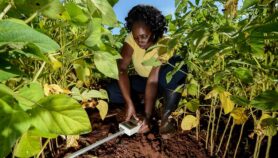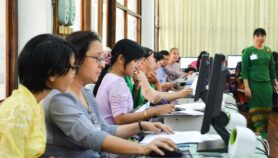Send to a friend
The details you provide on this page will not be used to send unsolicited email, and will not be sold to a 3rd party. See privacy policy.
Leading medical journals have few authors and editors from the countries affected by the tropical diseases that account for the bulk of the global health burden. This finding, by Jennifer Keiser of Princeton University’s Office of Population Research and her colleagues, has sparked a number of responses since the British Medical Journal published it in May (see Journals need more input from poor countries).
Ranjit Manchandra of Bedford Hospital and Rajesh Varma of Birmingham Women’s Hospital, both in the UK, say the solution is to recognise the contributions that scientists in poorer countries make to international collaborations. Ike Anya of Bristol North Primary Care Trust, UK, would like to see more research partnerships and open access publishing initiatives. And Joseph Ting, of Mater Public Hospitals in South Brisbane, Australia, says the answer lies in providing a quota of journal space for articles from developing-country researchers.
The authors of these three letters to the British Medical Journal all agree that a general lack of funding and resources in the South is fuelling the situation.
Reference: British Medical Journal 329, 110 (2004)
Link to full letter by Ranjit Manchandra and Rajesh Varma in the British Medical Journal
Link to full letter by Ike Anya in the British Medical Journal
Link to full letter by Joseph Y. S. Ting in the British Medical Journal













